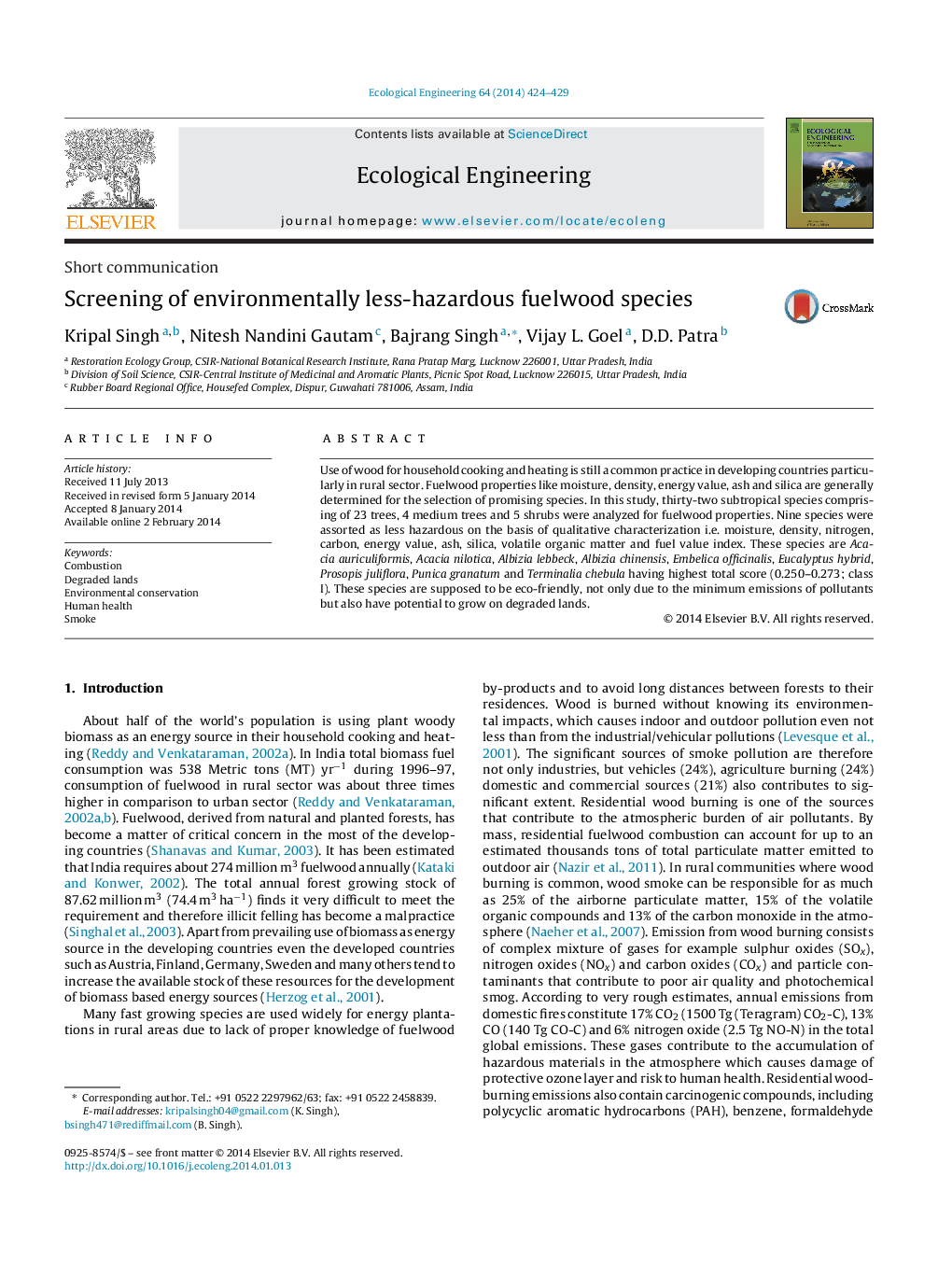| Article ID | Journal | Published Year | Pages | File Type |
|---|---|---|---|---|
| 4389606 | Ecological Engineering | 2014 | 6 Pages |
Abstract
Use of wood for household cooking and heating is still a common practice in developing countries particularly in rural sector. Fuelwood properties like moisture, density, energy value, ash and silica are generally determined for the selection of promising species. In this study, thirty-two subtropical species comprising of 23 trees, 4 medium trees and 5 shrubs were analyzed for fuelwood properties. Nine species were assorted as less hazardous on the basis of qualitative characterization i.e. moisture, density, nitrogen, carbon, energy value, ash, silica, volatile organic matter and fuel value index. These species are Acacia auriculiformis, Acacia nilotica, Albizia lebbeck, Albizia chinensis, Embelica officinalis, Eucalyptus hybrid, Prosopis juliflora, Punica granatum and Terminalia chebula having highest total score (0.250-0.273; class I). These species are supposed to be eco-friendly, not only due to the minimum emissions of pollutants but also have potential to grow on degraded lands.
Related Topics
Life Sciences
Agricultural and Biological Sciences
Ecology, Evolution, Behavior and Systematics
Authors
Kripal Singh, Nitesh Nandini Gautam, Bajrang Singh, Vijay L. Goel, D.D. Patra,
